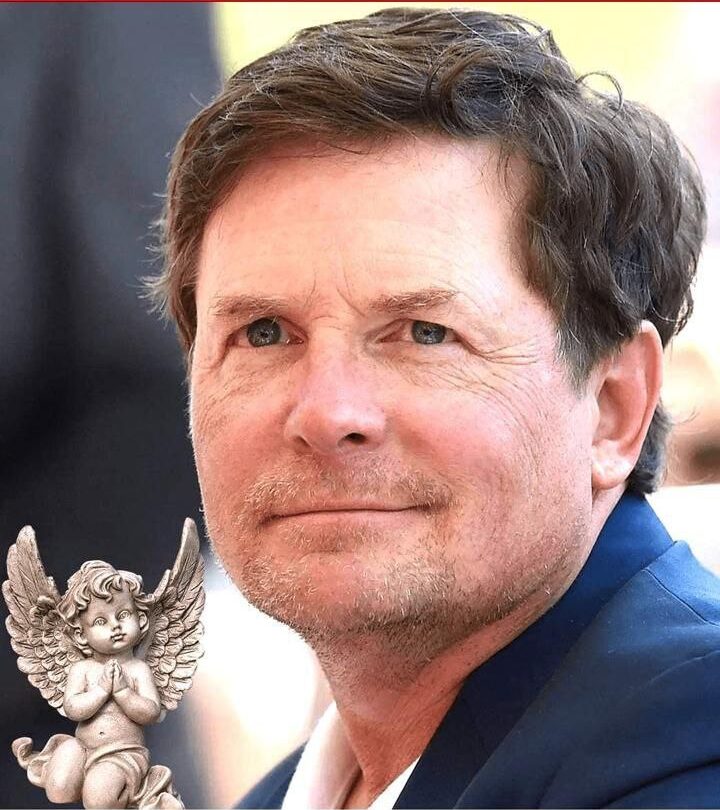For more than 30 years, Michael J. Fox has lived with Parkinson’s disease — a condition that could easily have broken even the strongest among us. Yet at 62, he continues to inspire millions, not because of the fame he earned from Back to the Future or Family Ties, but because of the courage, humor, and resilience he’s shown in the face of unimaginable challenges.
Fox was just 29 when his world changed forever. At the height of his career — young, successful, and beloved — doctors told him he had Parkinson’s, a progressive neurological disorder with no cure. At first, he kept it secret, hiding the symptoms and throwing himself into work. But as the disease advanced, so did his sense of purpose.
In 1998, Fox made his diagnosis public, transforming what could have been a quiet retreat from Hollywood into a powerful mission. A year later, he founded the Michael J. Fox Foundation for Parkinson’s Research, now recognized as the leading force behind global Parkinson’s breakthroughs. The foundation has raised over $2 billion, funding studies, treatments, and clinical trials that are reshaping the future of Parkinson’s care.
“I realized I had a platform,” Fox once said. “I could either use it or waste it. This disease ended up giving my life more meaning than I ever imagined.”
Turning Pain Into Purpose
Living with Parkinson’s hasn’t been easy. Fox has endured tremors, muscle stiffness, broken bones from falls, and numerous surgeries. But through it all, he’s remained disarmingly funny and open. His humor became his armor. “If I fall down, I get back up,” he joked once. “It’s not graceful — but it’s me.”
Behind those jokes, however, is deep strength. Fox has spoken candidly about the darker moments — the frustration, the fatigue, the days when optimism doesn’t come easily. In his memoir No Time Like the Future, he admitted, “I used to think optimism was a choice. Now I see it’s a form of survival.”
That’s the essence of Michael J. Fox — real, raw, and relentlessly human. He doesn’t pretend everything’s fine. He practices what he calls “radical acceptance” — acknowledging the hard truth but still choosing to live with purpose.
Family and Faith Keep Him Grounded
Fox often credits his wife, actress Tracy Pollan, and their four children for keeping him steady through life’s storms. The couple, who met on the set of Family Ties, have built one of Hollywood’s most enduring marriages. “Tracy’s my rock,” he’s said. “She never signed up for this, but she’s faced it with love and grace. I owe her everything.”
Despite his condition, Fox continued acting for decades — earning Emmys for Spin City, guest-starring in Rescue Me and The Good Wife, and voicing animated favorites like Stuart Little. Every role required adjustment and perseverance, but Fox’s motivation stayed the same: he simply loved to create. “Acting gives me energy,” he said. “It reminds me that I’m still part of something bigger than my condition.”
A Legacy Larger Than Hollywood
His impact now stretches far beyond entertainment. Scientists credit the Michael J. Fox Foundation with pushing Parkinson’s research forward faster than ever before — breaking down walls in data sharing and inspiring collaboration across the medical community.
Even as the disease takes a greater toll, Fox remains unflinchingly honest. In a 2023 interview, he reflected, “It’s getting harder. I fall a lot. I break stuff. But I’m still here.” Then, with his trademark grin, he added, “It’s not about how long you live — it’s about how well you live.”
That message resonates deeply. Fox’s story isn’t about loss — it’s about resilience. It’s about showing up every day with humor, humility, and hope. In a world that prizes perfection, he’s shown that true strength is found in imperfection.
He doesn’t hide his tremors. He doesn’t edit out the stumbles. He lets people see them — because being real is his superpower.
“You don’t have to have a good day every day,” Fox says. “You just have to believe that a better one’s possible.”
Michael J. Fox is more than an actor, more than an advocate. He’s proof that light can be found even in the darkest corners — and that courage isn’t the absence of fear, but the decision to keep going despite it.

